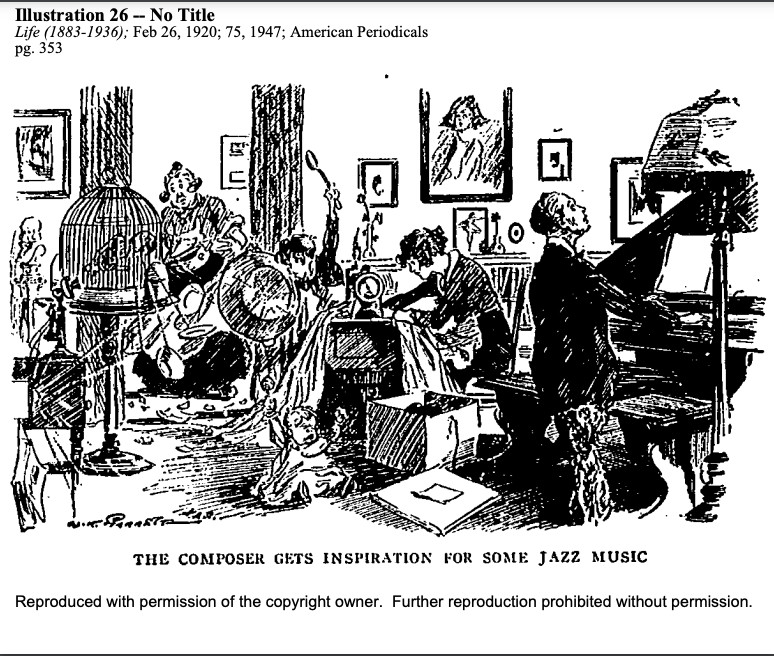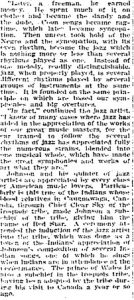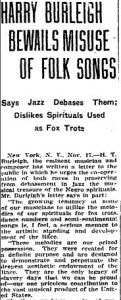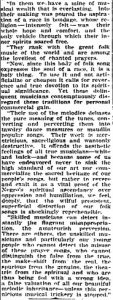
Illustration 26 (Feb. 26, 1920): The Composer Gets Inspiration For Some Jazz Music0
What is jazz? In order to discover what it is, we must discover where it came from. Jazz originated on the West coast of Africa, and was transported to America by slave labor in the late 1800s. In the few holidays that slaves were given when working on plantations, Africans from the west coast would sing spirituals, and songs of celebration. The term “Jaz” was a cry for means of celebration, and would cue high speed music the accentuate the excitement of their holidays off of tedious work.1
Jazz isn’t a specific form of music, but rather a treatment applied to different aspects of music. Jazz was a detail of music so different from the rest, to the point where communities wished it was banned from being listened to. From the usages of new syncopations to the idea of improvisation, Jazz created such a different outlook on what music would sound like, but this certainly isn’t the first time the world has heard of such drastic changes.
Take Beethoven, Wagner, Debussy, and Stravinsky, to name a few, for example. What did all of these composers have in common? They all changed musical conventions to what they felt music should feel and sound like, further “distorting what before them had been accepted as conventionally correct.”2 Just like in the origins of jazz, many were disgusted in the new ideas of such prolific composers. However, if we zoom out of their roles with respect to their creative ideas, we can see the impacts they each had on the effects of music today.
These composers created new emotions that the music brings forth to its audience and to its musicians. This is comparable to that of the experiences between indigenous people and European settlers in “Music In The USA” edited by Judith Tick.3
The European settlers were exposed to new sources of tradition and music. Meanwhile, this same music of the indigenous people had been celebrated for centuries prior to the Europeans settling. Experiencing these new characteristics of music make it difficult for indigenous and jazz genres of music to be boxed into a set category of music – improvisation and restriction of theory skills are not extremely important in these two treatments of music compared to its European Classical counterpoints of music.4 If they are two completely different types of music that come from different backgrounds, then why do we continue to push them together as a whole?
Jazz created a new outlook on music, and thus created a new outlook on life, one that served great prominence in American culture, and continues to do so today.




